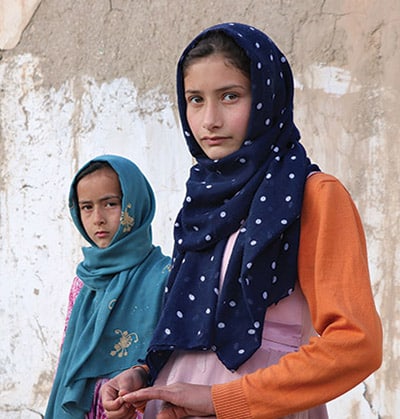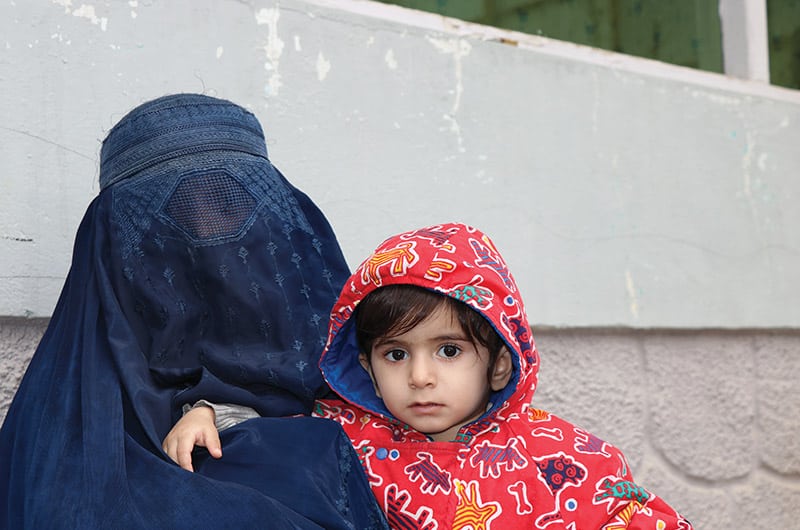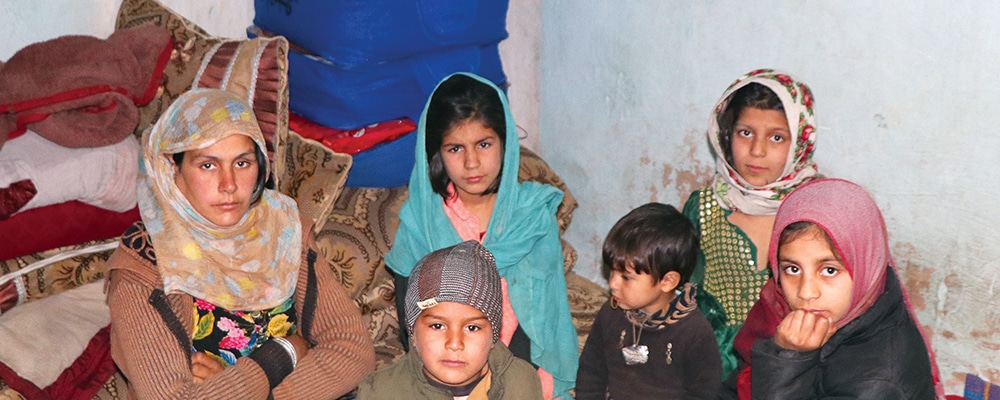CAI donors step in to help Afghan women and children in crisis
By Alice Thomas
What happens to an impoverished family in Afghanistan when the father is killed in the war or leaves his wife and children behind to work in another country? Thirteen-year-old Tamana knows.
Last year, her father left to work in Iran. She lived with her mother, grandfather, and nine siblings in a crumbling, damaged home. Twelve people shared one room and a kitchen with no door, window, or proper roof. Cooking was difficult when it rained or snowed. Her mother begged at the village bakery for bread to feed her children. Tamana finished one year of schooling before the family ran out of money to buy her books, notebooks, pens, and school uniform. She hasn’t been back.
Tragically, Tamana’s situation is not unique. Since the Taliban retook control of Afghanistan more than a year ago in August 2021, the humanitarian crisis in the country has worsened dramatically. Thousands of families don’t have enough food to eat, and a shockingly high number of children are suffering from severe malnutrition. Hundreds of thousands of people were displaced by the fighting during the summer when the Taliban took control. Families forced to flee their homes with only the clothes on their backs went to squalid, crowded displacement camps. The majority were women and children.
Shortly after taking power, the Taliban put in place harsh restrictions on women’s ability to work outside the home, putting female-headed households like Tamana’s in dire straits. When mothers are forced to stay at home with their children, they have no way to earn income.
The plight of Tamana’s mother Rahila, who must raise her destitute family by herself, is heart wrenching. “I am spending my entire life struggling so hard to find a bite of food for my daughters,” she said.
Last winter, the situation grew especially dire for the most vulnerable, including displaced and female-headed households. As the frigid temperatures set in, the poorest families were without fuel to heat their homes, proper clothing to keep them warm, and money for medicine when someone got sick. The COVID pandemic only deepened the economic crisis.

Your dollars at work
Thirteen-year-old Sumaya lives with her parents and two sisters. Her father suffers from a chronic mental disorder and is unable to work. Her mother sometimes does laundry and housework for other families, but no one is earning a consistent income. Their home is in poor condition. They’re frequently late with the rent and without money to buy food and household supplies.
Sumaya went to school through grade five, but now the family cannot afford her school supplies and uniform. Sumaya would love to become a doctor and help others, but she has no idea what her future holds. She and her family live in a chronic state of uncertainty.
Meeting people where they are
While women still dream of providing an education for their children, often they can only focus on getting by. When they have been left to raise their children by themselves, unable to leave home to find work, they struggle just to keep their family fed, sheltered, and warm.
Thanks to your support, last winter we were able to give hundreds of families the emergency aid they needed most. Looking to the future, we remain nimble, acutely aware that the situation in Afghanistan is volatile. We need to be ready to act quickly and respond appropriately in an emergency.
With the Taliban back in power and the economy in shambles, millions of people remain in crisis. Emergency mode—at least for the foreseeable future—appears to be the new norm. But with your continued support, we know that Afghans, like Tamana and Sumaya, have a fighting chance.


